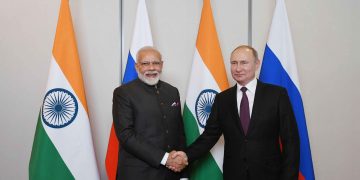The BRICS nations have long sought to reduce their reliance on the U.S. dollar, but creating a unified currency has been challenging due to China’s economic influence, which would effectively make any common currency equivalent to the yuan. However, a new approach has emerged: a blockchain-based payment system named “BRICS Pay.”
Kremlin aide Yury Ushakov discussed the initiative in an interview with TASS, stating that the new system aims to leverage cutting-edge digital technologies and blockchain to facilitate transactions among BRICS members. “The goal is to establish an independent BRICS payment system that is efficient for governments, businesses, and individuals, while remaining politically neutral and cost-effective,” Ushakov said.
This year, BRICS plans to enhance its role in the global financial system, as outlined in the Johannesburg Declaration of 2023. The focus will be on increasing the use of national currencies in international transactions and strengthening correspondent banking networks. “Efforts will continue to expand the Contingent Reserve Arrangement, with an emphasis on currencies other than the US dollar,” Ushakov added.
Currently, Russia has raised the use of national currencies in its trade with friendly countries to 75% and will host the BRICS summit in Kazan this summer. “BRICS Pay” is envisioned not as a new common currency but as a digital alternative to SWIFT, designed for transactions in national currencies using blockchain technology.
This initiative will integrate with forthcoming digital currencies such as the digital ruble, yuan, and rupee. Russia is fast-tracking its digital currency plans, with the Central Bank of Russia (CBR) developing the digital ruble, which is expected to be in circulation by 2025. The digital ruble will operate under strict regulation, unlike other blockchain-based currencies, with the CBR overseeing its issuance and security.
In August 2023, the CBR launched a pilot project for the digital ruble involving several commercial banks. This pilot aims to test transactions including wallet openings, client transfers, and payments in businesses. First Deputy Governor of the Bank of Russia, Olga Skorobogatova, emphasized the importance of thorough preparation for real-world digital transactions.





















